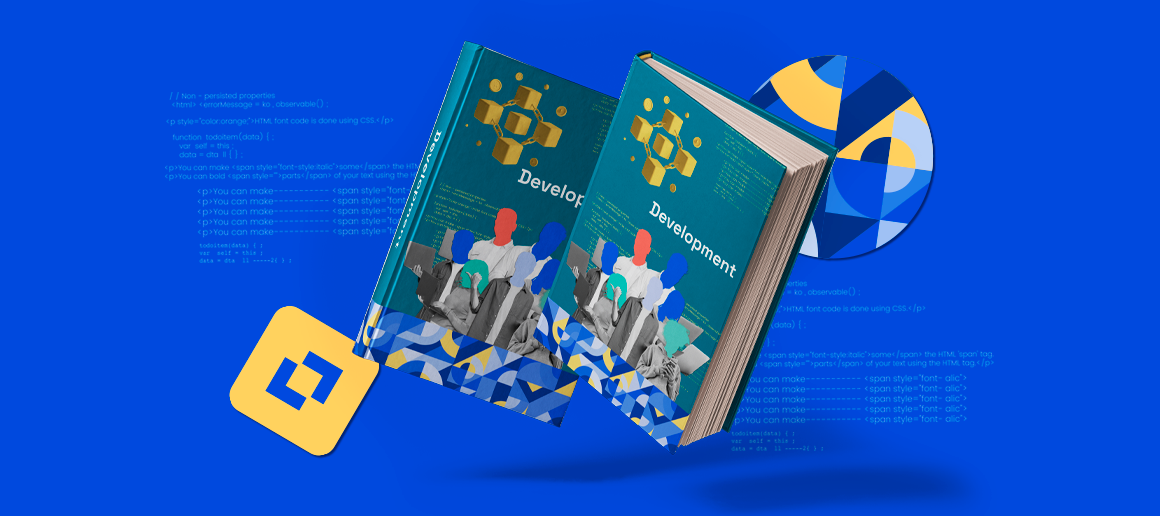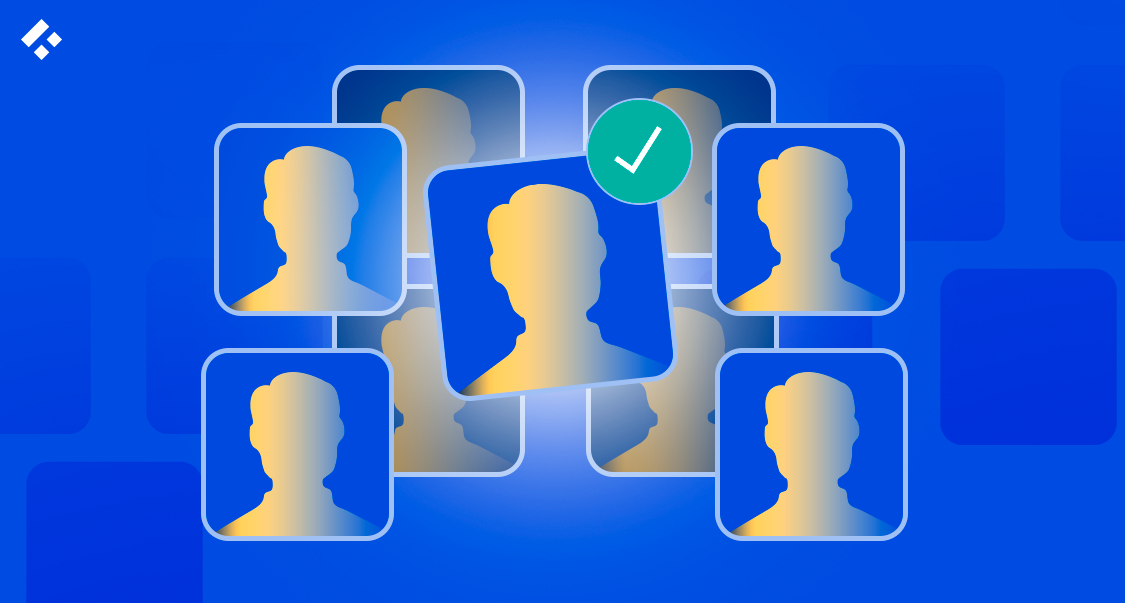Blockchain itself is formally defined as a distributed, decentralized, public ledger. This means that at its core, Blockchain is a record-keeping technology. With Blockchain, you can record transactions and track assets.
Are you ready to start your development project?
We have the developers you need to take your development project in the right direction.
Companies are proven to grow their business faster with Trio.
What Is Blockchain?
Blockchains power cryptocurrencies like Bitcoin or Ethereum. Bitcoin is especially popular and dominates the stock market. Digital currencies like Bitcoin have the advantage of low-cost transaction fees as well as being decentralized from government-issued currencies.
A block in a blockchain signifies the digital information or data that is recorded. Blocks are linked together using cryptography, which is essentially a means of keeping information discrete and secure. The cumulation of these blocks creates a chain equivalent to a public database.
The digital information contained in each block consists of three parts.
- Information about the blockchain transaction, such as the date, time, and dollar amount of the transaction, is recorded.
- More specific information is recorded related to who is participating in the blockchain transaction. The purchase is recorded without using identifying information and relies on digital signatures.
- A cryptographic hash function (CHF) distinguishes the current block from the last block. This is a mathematical algorithm that maps data into a unique code comprised of a hash distinctively set apart from the hashes of other blocks.
A single block on a Bitcoin blockchain can store approximately 1 MB of data. In other words, a single block can hold the information of thousands of transactions.
For a block to be attached to the blockchain, a couple of things must happen. Of course, the transaction must occur. It is then verified through thousands of computers distributed across the net.
The transaction data is stored in a block with the information from the first two steps listed above. And lastly, as per the third step, a hash is created. The distinction between one block and another is very important.
If you, for example, make a purchase on Amazon and make a nearly identical purchase just five minutes later, blockchain is equipped to distinguish the two transactions.
Each member of the blockchain network has a copy of the chain, hence the term distributed ledger. Blockchain networks also provide smart contract (chain node) services to applications.
Smart contracts generate blockchain transactions in the first place, which are distributed to peer nodes within the network where they are recorded.
What Is a Blockchain Developer?
Blockchain developers are those responsible for developing blockchains. As simple as it sounds, there are actually two types of blockchain developers – core blockchain developers and blockchain software developers.
Core Blockchain Developers
Core blockchain developers are responsible for the architecture of the blockchain system. This involves high-level decisions like the design of the blockchain and the consensus protocol. Part of such a task is also handling security conventions.
Blockchain Software Developers
Blockchain software developers simply create blockchain applications. These developers are alternatively called decentralized application developers because they build decentralized apps or dapps.
This role is not unlike that of a typical software developer. But dapp developers must be able to develop smart contracts using tools such as Truffle and Solidity. Dapp developers may also use languages correlated with mobile or web app development, like React Native or Java.
Why Use Blockchain?
Blockchain is considered to be extremely secure. This is because the data in a block cannot be modified; only subsequent blocks can be modified. To do this, there must be a consensus among the network majority. Any malicious activity would be detected immediately.
To add, Blockchain is virtually free. There is a cost for the infrastructure, but not for transactions themselves. For this reason, businesses can save the bother of paying small fees for every other financial operation.
Overall, Blockchain is a budget-friendly means of building trust between two parties. For businesses that have to make transactions with unestablished clients – whether that be financial or otherwise – having a secure system to do so can be very useful, if not necessary.
Your use of blockchain isn’t limited to money either. There is a multitude of situations where blockchain can be handy, including copyright protection, digital voting, reward programs, medical archiving, and more.
Advantages of Using Blockchain
Most people tend to associate blockchain with Bitcoin. But this is just one example of how blockchain technology can be utilized. And utilizing blockchain for your own business carries a number of advantages.
Decentralized
Blockchain doesn’t depend on an intrusive middleman. This means no government currency and also no third parties for verification.
In addition, transactions are spread across thousands, or perhaps even millions of computers – although only your blockchain network can access it. Thanks to this decentralization, data is never lost.
Immutable
The data structure of a blockchain uses an append-only format. Ill-intentioned parties can not alter or delete data that has already been recorded. Naturally, this provides an extra layer of security.
Secure
Cryptography has Greek origins, tracing back to the words hidden and secret. Even its modern denotation signifies a method of secure communication. Blockchain uses cryptography to encrypt the data stored within blocks, keeping everything extra secure.
Blocks can only be attached to the chain after going through a verification process that requires a consensus between ledger participants.
Transparent
As blockchain is a distributed ledger, everyone in the network has access to the same documentation. These digital copies all root back to the same digital information, so you don’t have a dozen individual copies of sensitive information.
Efficient
Cost-efficiency is a basic tenet of blockchain technology. But blockchain is efficient in more than one way. When you trade using your traditional pen and paper, it slows down business operations.
Digital transactions are much faster, and therefore more efficient. At the same time, digital information makes it much easier to store and record important business assets, ensuring traceability.
Companies That Use Blockchain
- Visa
- Walmart
- Ford
- Scotiabank
- Sunoco
- Coldwell Banker
Reasons to Hire a Blockchain Developer
The notion of software development is probably what brought you to this page, but the tech industry goes beyond making mobile and web apps. For example, if you’re a new business on the brink of setting up an online store you may not have put much thought into how to handle your finances.
Asking for credit card information is easy enough but how will you make sure that no one can access a user’s confidential information, or worse, hack your entire system? Blockchain is a real-world solution for your payment processing snd//or money transfer needs.
Withal, blockchain isn’t just some app on the app store. It’s an entire system and methodology, and professionals who have expertise in the blockchain business have spent precious time learning it.
Core blockchain developers can build a blockchain system for your technology to utilize, and app developers can help you build a decentralized app like Bitcoin to service other businesses and hopefully top the markets as well.
How to hire a Blockchain developer
Hiring a blockchain developer may be a difficult process if you don’t know what to look for. Unlike JavaScript or Python, Blockchain isn’t simply a programming language. It’s something with the potential to change how you keep your business assets secure for the better.
Of course, many tech-savvy professionals have also realized the wonders of blockchain and have dedicated their careers to working with this emerging technology for the foreseeable future.
For those who wish to take the high road and hire Blockchain developers on your own, we’re here to help.
Hiring a developer on your own is a very focused and hands-on process that requires considerable knowledge about software development in general.
The last thing you want to do is trust your hiring process to someone with no technical ability. If you are a non-technical manager looking to learn a thing or two, we have a great resource here for you to learn more about the hiring process in detail.
Otherwise, we’d recommend you contact Trio for consulting and developer allocation.
What should you look for in a Blockchain developer?
High-level blockchain developers should have the following abilities:
Core Blockchain Developers
- Capable of designing consensus and blockchain protocols, security patterns, and network architecture
- Can supervise the entire network
- Familiarity with how to program in languages suited for blockchain design, like Rust, Go, C++, or Java
Blockchain Software Developers
- Development experience using blockchain technology for smart contracts and web or mobile apps
- Front-end programming expertise for building interactive dapp designs
- Back-end programming expertise for blockchain management
How much do developers cost in the U.S.?
ZipRecruiter reports that the average blockchain developer in the United States makes $154,550 a year. This is the mean in a range with salaries as low as $11,000 and as high as $242,000.
How much do developers cost in South America?
Due to economic differences between the United States and South America as a whole, the cost of offshoring software development is significantly lower than hiring full-time with U.S talent. For Senior Blockchain Developers in South America, the average salary is currently around $100,000 whereas a mid-level developer costs around $76,000.
How much do developers cost in Ukraine / Eastern Europe?
Eastern Europe shares very similar rates to South America, again due to the economic differences. When looking at salaries in Eastern Europe, data shows that a Senior Blockchain Developer costs around $100,000 on average.

Subscribe to learn more about Hiring
Hourly Rates for Developers
Another way to look at developer costs is through hourly rates. While salaries are good to understand for hiring developers for full-time and long-term, you might just need a developer for a period of 3-6 months or 6-12 months. In these types of situations, it’s best to calculate your costs based on the hourly rates of a developer.
Below is a table that lists the various hourly rates of developers in different locations based on their job title.

Why Hire a Blockchain Developer?
Trio Blockchain developers are pre-vetted, interviewed, and then trained further to become true software professionals, capable of adapting to situations that are both within and outside of the scope of their general expertise.
At Trio, we hold our developers to a higher standard. Much like how elite special forces units recruit only the best from the main branches of the military, we recruit developers who either show amazing potential or demonstrate exceptional skill. We then take their talents and sharpen them even further.
Another benefit of hiring a Trio developer is that you won’t incur the costs of hiring, which can add up to be around 30% of a developer’s salary on average, as well as overhead costs associated with full-time employment.
By working with Trio, you can enjoy a highly experienced full-time developer for a fraction of the cost, along with the added project management assistance.
Trio offers unparalleled software wisdom and access to South American developers. Meet our elite Argentine, Chilean, and Brazilian developers for outsourcing excellence.
To learn more, tell us about your project, and we’ll get you started.






